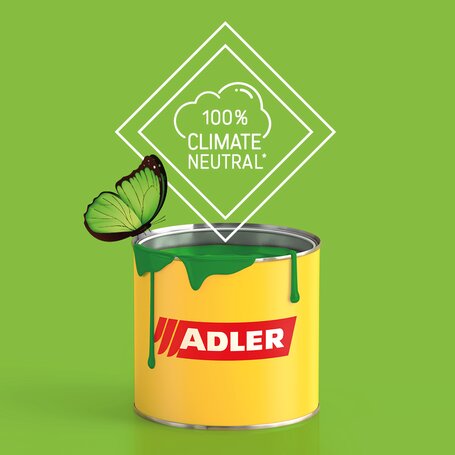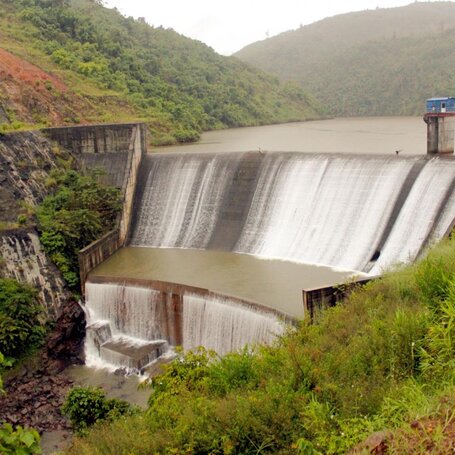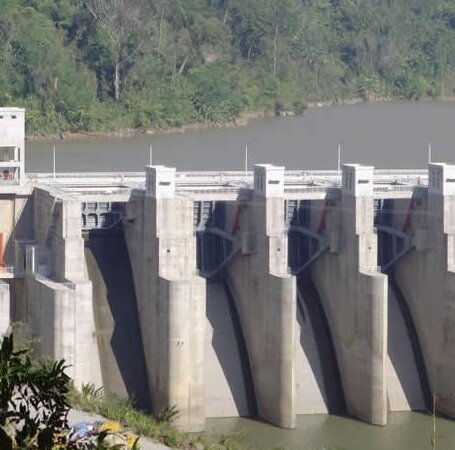Climate neutral company
ADLER is one of the first companies in the paint and varnish sector to have made their manufacturing process climate-neutral. This step is part of a comprehensive sustainability strategy that ADLER has consistently pursued for many years. Through numerous measures, ADLER has reduced its carbon footprint to a minimum. ADLER offsets the remaining emissions through recognised climate protection certificates. This enables the financing of new climate protection projects that help to avoid CO2 and other greenhouse gases and thus protect the climate.
Key factor: greenhouse gases
Greenhouse gases act like the glass of a greenhouse. They allow sunlight to pass through, but retain the heat radiation reflected from the earth's surface in the atmosphere. The result is global warming, which in the worst case can develop into a climate catastrophe.
Both natural and man-made effects are decisive for this greenhouse effect. Among the man-made factors, the greenhouse gas carbon dioxide is particularly relevant and is responsible for 65% of global warming. This is why CO2 reduction is a particularly important measure against climate change.
CO2 reduction
The most important step on the way to climate neutrality is to reduce or avoid CO2 emissions: By using electricity from sustainable sources such as photovoltaics, wind or hydropower, through energy efficiency and clean mobility measures or through exhaust air purification. Only when a further reduction is no longer technically or economically feasible does it make sense to compensate for the remaining emissions through CO2 offsetting.
The ADLER way
ADLER has had its overall carbon footprint examined by recognised institutions and has voluntarily opted to offset all emissions that fall under Scope 1 (direct emissions, e.g. from heating, production or the vehicle fleet) and Scope 2 (indirect emissions from purchased energy, e.g. electricity). In addition to this, ADLER also offsets significant amounts of Scope 3 emissions, including upstream energy-related emissions and the emissions that arise through business trips, the journeys to and from work of employees and the disposal of residual (non-recyclable) waste. All these CO2 emissions are offset not just for the ADLER factory in Schwaz and its fleet of vehicles, but also for all the other ADLER sites in Austria.
ADLER's carbon footprint in these areas is very low in comparison to others in the sector at around 3,800 t/year CO2-eq, and this is all down to countless projects aimed at cutting CO2 emissions, e.g.
- Environmentally friendly electricity: The ADLER plant is supplied with electricity from 100% renewable sources.
- Energy savings: Numerous measures, such as LED lighting technology, thermal refurbishment, air conditioning to deep wells and much more, have significantly reduced the ADLER plant's energy consumption.
- Renewable energy: Photovoltaic systems on the factory premises in Schwaz produce around 220,000 kWh of clean electricity per year, which corresponds to the electricity consumption of around 50 average Austrian households.
- Efficient production: Thanks to an innovative modular production method, the new ADLER water-based paint factory requires around 30% less energy than conventional production methods.
- Clean air: Since 2016, solvent emissions from paint production have been reduced by more than 12%.
- Low-emission paints: Low-emission water-based paints already account for 65% of ADLER's total production volume.
- Clean vehicle fleet: ADLER only uses vehicles that meet the Euro 5 and Euro 6 emissions standards. In 2019, two electric vehicles were added to the vehicle fleet, and bicycles are used for trips on the factory premises.
- Environmentally friendly delivery routes: A reorganisation in customer delivery can save 12 t of CO2 per year. Where possible, rail is used for freight transport.
- Waste water and exhaust air purification: Waste water and exhaust air from the production facilities are filtered and cleaned at the ADLER plant's environmental protection and recycling centre.
ADLER offsets the residual emissions that are unavoidable despite all these measures through the purchase of recognised climate certificates for two hydropower projects in South East Asia:
DakRTih Hydropower
The DakRTih Hydropower Project is a two-tier hydro-electric power plant in the central highland area of Vietnam with the capacity to produce 144 MW. The power plant supplies the people in the province of Dak Nong with clean energy and at the same time delivers water for regional agriculture. In comparison to plants powered by fossil fuels, the project cuts the CO2 emissions produced by more than 550,000 tonnes per year. You can find further information here.
Dapein (1) Hydropower
The Dapein (1) Hydropower Project was set up on the River Dapein in the town of Bhamo in Myanmar and generates more than 1 million MWh of sustainable electricity every year. Around 10% of the power generated is provided free of charge by the operating company so that the population of Myanmar – one of the poorest countries in the world – can be supplied with affordable energy. You can find further information here.
We need to think globally: climate change doesn't respect national borders
CO2 offsetting takes place through the purchase of certificates for each tonne of CO2. These certificates finance new, additional climate protection projects in developing and emerging countries. Although the starting level is low in developing countries, a much higher effect can be achieved here with the same input. Certification is handled by an independent organisation. Positive side effects include rising environmental standards, economic stimuli and new jobs in developing countries. For the climate, it doesn't matter whether CO2 is reduced in Europe or in other parts of the world – the main thing is that it is reduced. Due to the significantly lower standards in terms of environmental protection, sustainable energy production, etc., as well as due to the significantly lower cost level, much more can be achieved in terms of CO2 savings with the same input in developing countries than, for example, in Europe.
ADLER is thus one of the first companies in the industry to voluntarily offset its emissions under the Kyoto Protocol!
© by adler-lacke.com



